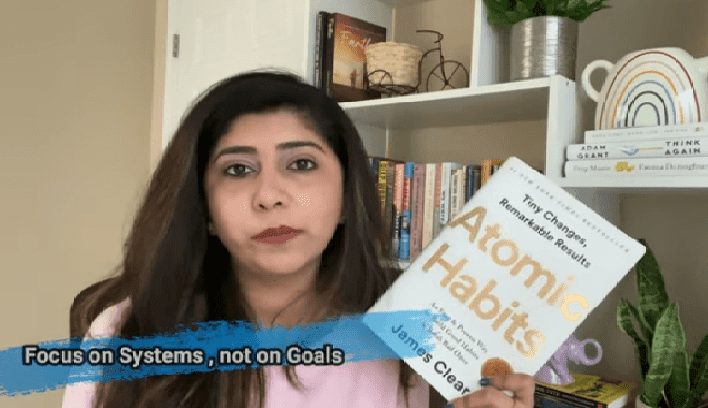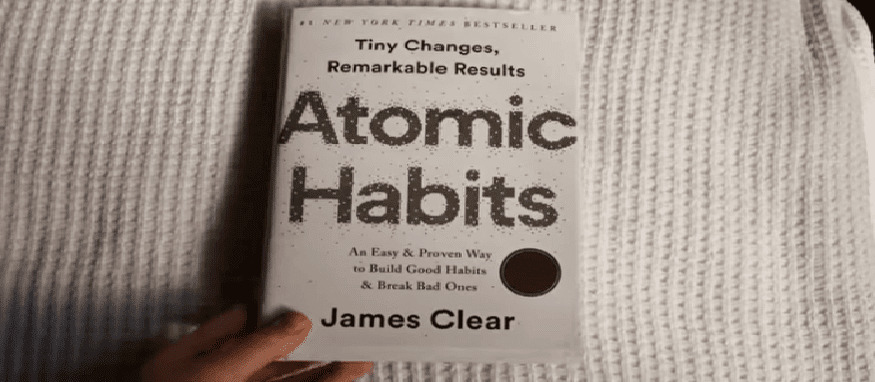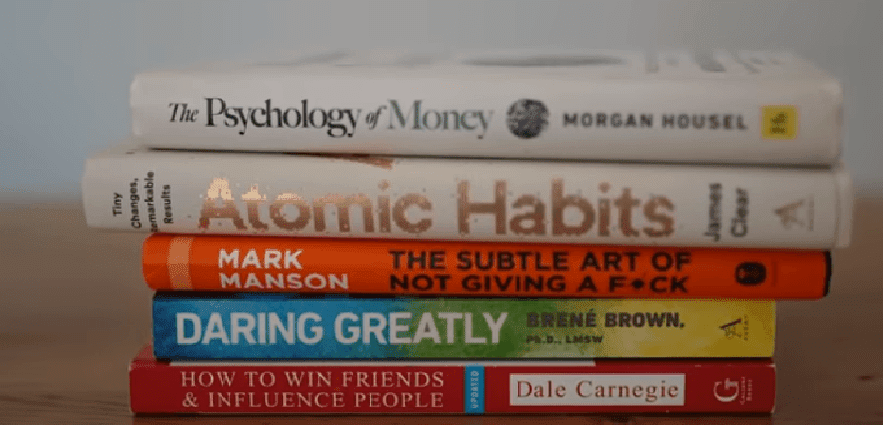The extent of our success in life is primarily determined by our habits. Initially, we form habits, and subsequently, these habits shape us. The small positive routines we do every day can lead to success, while negative patterns can bring us down over time. A significant number of individuals regard "Atomic Habits" as a gold standard. There are some of the most powerful and beautiful concepts in this book that can sweep you off your feet. Therefore, it is crucial to read this post with undivided attention because it has the power to change your life.
The book "Atomic Habits" by James Clear has gained massive popularity worldwide and achieved the status of an international bestseller due to its simple yet powerful concept. The author's intention is to convey that small improvements in your habits can lead to significant changes. This is why he titled his book "Atomic Habits". The term "atomic" refers to something incredibly small. As a result, atomic habits are habits that are also small in nature.
Let's understand it with an example. From 1908 to 2003, British Cycling experienced its lowest point, as they were only able to secure one Gold Medal over 95 years. Tour De France is one of the most prestigious cycling races, but a British Cyclist has never won it. The situation was so bad that the leading European bike manufacturers were hesitant to sell their equipment and bikes to British cyclists, fearing that it would harm their brand image. In this turmoil situation, the British Cycling team started dominating the cycling world with the appointment of a new director of performance, Dave Brailsford. The British Team dominated the cycling category at the 2008 Beijing Olympics, securing the majority of gold medals. Their impressive performance accounted for 60% of the total and proved their exceptional talent in this sport. They further raised the bar in 2012 by setting 9 Olympic records and seven world records. The same year, Bradley Wiggins became the first British Cyclist who win Tour De France. In the following year, Chris Froome, his teammate, emerged victorious once more and continued to do so every year until 2017.
The question that arises is how Dave Brailsford turned ordinary athletes into extraordinary ones and broke all the records. The answer is a one percent improvement or we can say atomic improvement. Dave began to bring small improvements in everything related to cycling. Bike seats were redesigned. Gears were made better. Alcohol was used for better tyre grip. Massage gill was used for the recovery of muscles. He did a one percent improvement in hundreds of things related to cycling and the world witnessed the result.
Atomic habits are the same minor improvements in your habits that can transform them into life-changing habits. We think we need massive and abrupt changes to produce big results. It is commonly believed that to attain great success, one must take massive action. However, the reality is quite different. Success doesn't require drastic changes. Just a one percent improvement every day is enough.
One important point to consider is why people struggle to maintain their good habits over a long period and eventually lose their motivation. For instance, many people start going to the gym with great enthusiasm, but eventually give up. This is called the Plateau of Latin Potential. Many of us anticipate that adopting a new habit will be a straightforward and effortless process with immediate results but the truth is different. Developing a new habit requires both patience and perseverance with unwavering commitment and persistent daily endeavors, success can be achieved.
Many people experience disappointment and fail to fully enjoy the fruits of their labor though the results are on the horizon. Thus, habits are the compound and trust of self-improvement. As wealth grows through compounding, so too do the effects of our habits as we continue to practice them. It doesn't matter how successful or unsuccessful you are right now. What matters is whether your habits are putting you on the path toward success. If your trajectory is right and If you are committed, then mark the words, you will be successful.
Another significant aspect James highlights in the book is to have goals. We always advise to have goals, to have aims in life but James rejects this idea. He says one should focus on the system instead of goals. Within the book, he outlines four problems related to an excessive focus on goals.
Problem No. 1: Winners and losers have the same goals. Every race has a winner and a loser, but both have the same goal which is to come first in the race. Therefore, if you are goal-focused, then there will be no difference between winning and losing. Your goal must be to master the race mechanics instead of winning the race.
Problem No. 2: Achieving a goal is only a momentary change. It means you won the race, you achieved your goal and the narrative concludes.
Problem No. 3: Goals restrict your happiness. It means your happiness is bound to the attainment of your goal. You restrict your happiness until you achieve your goal and you don't enjoy the process. Therefore, you delay your happiness till the time you achieve your goal.
Problem No. 4: Goals are at odds with long-term progress. If you are only goal-oriented, then as you achieve your goal, you will stop self-improvement and will never remain progressive. Author means by system the activities for the achievement of a goal. If you fall in love with these activities rather than your goals, then you will always grow in your life.
Another major concept James talks about in the book is "behavior change". According to the author, there are three layers of behavior change. One is outcome, the second one is processing and the third one is identity. Outcome-based behavior is goal-driven like losing weight or publishing a book. The second layer of processes is concerned with changing your habits and systems. The third and deepest layer is changing your identity. It means changing your own core, image, beliefs, and judgment positively.
According to James Clear, identity-based habits are long-lasting and productive as compared to outcome-based habits. For instance, the goal should not be to read a book but to become a reader. True change is actually a behavioral change and identity change.
The most significant concept of this book is the habit loop. You should know the science behind the creation of any habit. Any work you want to make your habit has to pass through four stages. The first stage is "Cue" followed by "Craving". The third one is "Response" and the fourth one is "Reward". "Cue" is that trigging point that creates a "Craving" in you for doing something like the ring of your phone that works like a trigging on the basis of which you respond. "Response" is usually followed by a "reward" so that you repeatedly do this activity and this loop keeps going on. From here four laws of behavior change initiates. Following these laws, you can adopt or avoid any good or bad habit.
The first law for adopting a good habit is to make it obvious. It means making it accessible and automatic like waking up at 6 O'clock in the morning and reading a book for 15 minutes in my room. It is called implementation intentions. You can also use another trick like reading a book for 15 minutes and noting three words in a diary and then using them in sentences so that they could be remembered.
The second law is making it attractive. The habit you want to adopt should be made attractive. Join the people or associations where the desired behavior is normal behavior. For instance, if you want to become a reader, then join such people who enjoy reading.
The third law is to make it easy. It means reducing the friction between you and the habit you want to adopt. Decrease the number of steps between you and your good habit.
The last and fourth law is to make it satisfying. It means giving yourself an immediate reward when you complete your habit. Reward yourself when you do any good because it increases the probability of repetition. A behavior that is not rewarded will not be repeated.
If you want to avoid your bad habits, inverse these laws like the first law which is visible will become invisible. For instance, if your friends smoke, then avoid them and make friends who don't smoke.
The second law is to make unattractive instead of attractive. Change your mindset and highlight the benefits of avoiding your bad habits.
The third law is to make it difficult instead of making it easy. As we recommended to reduce friction between you and your good habits, you have to increase the friction in the case of your bad habit so that you can avoid that habit easily.
The fourth law is to make it unsatisfying instead of satisfying. It means making such a situation in which doing something creates an unsatisfactory feeling instead gratifying feeling.
This is one of the finest books in the category of self-help and personality development. Its core concepts are very powerful and if you bring one percent improvement on a daily basis, then you will be unstoppable.







